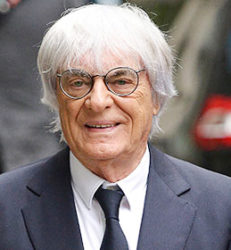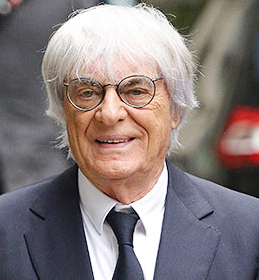SINGAPORE, (Reuters) – Formula One supremo Bernie Ecclestone has cast doubt over the future of the sport in Southeast Asia by telling a German magazine that Singapore no longer wants to host a grand prix after its current deal expires next year.

Neighbouring Malaysia will not host a Grand Prix after 2018 because of declining ticket sales and TV viewing figures, the country’s Tourism and Culture Minister said on Monday, and the region could be left without a race for the first time since 1998.
The Singapore race costs some S$150 million ($105.04 million) to put on every year, 60 percent of which is funded by the government. It was first staged in 2008 and the city-state renewed its contract for another five years in 2012.
Ecclestone’s blunt comments in Auto Motor und Sport, however, suggested negotiations over a further extension have not gone well.
“Look at what we have done for Singapore,” Ecclestone said. “Yes, the grand prix has cost Singapore a lot of money, but we’ve also given them a lot of money.
“Singapore was suddenly more than just an airport to fly to or from somewhere. Now they believe they have reached their goal and they do not want a grand prix anymore.”
In comments to Singapore newspaper the Straits Times, however, Ecclestone clarified that F1’s stand was that it did not want to lose Singapore.
“My words were taken in a funny way. What I said was simple – no decision has been taken yet. Negotiations are ongoing and will be sorted out shortly… before the end of the year, I’m sure. We want to extend long-term,” he said. “We’ll see what happens.”
The event is organised in the city-state by Singapore GP, a private company owned by Ong Beng Seng, one of Singapore’s richest men. A spokeswoman for the company said in an e-mail on Monday: “We don’t comment on ongoing commercial negotiations.”
Ecclestone, 86, is famous for outspoken media interviews during negotiations. The Briton attended this year’s Singapore race amid negotiations on F1’s takeover by U.S. cable TV mogul John Malone’s Liberty Media.
Formula One announced a record-equalling 21-race provisional calendar for 2017 in September.
The Singapore race is one of the glamour rounds of the championship, taking place at night on a street circuit with spectators entertained by music acts such as Beyonce and Justin Bieber.
Crowds, which topped 100,000 on all three days in the first year, have declined, however, with this year’s race averaging 73,000 spectators for each day, down from 87,000 in 2015.
A decline in ticket sales in Malaysia was also behind the decision by the government and race organisers there to end to their annual round of the championship, which has been held at Sepang since 1999.
Singapore’s tourist sector is seeing a structural shift away from heavy spenders and towards the emerging middle classes of China, India and Indonesia, analysts say.
Tourist arrivals have been on the rise. In the first eight months of this year, before the F1 race, the number of visitors was up 10.3 percent from the same period of 2015, at 11.3 million.
Singapore’s tourism receipts in the first half of the year grew 12 percent to S$11.6 billion, driven mainly by shopping, accommodation and food and beverage, which offset a fall in sightseeing, entertainment and gaming.
Trinh Nguyen, a senior economist for emerging-market Asia at Natixis SA in Hong Kong, said the recent drop in F1 attendance may be a sign that the novelty of the event is wearing off, and may also be a reflection of weak regional growth.
“It (F1) also comes with costs. Thus, with tourism receipts (from F1) waning the cost benefit calculus is tipping in the other direction,” Nguyen said.
Caption Bernie Ecclestone

